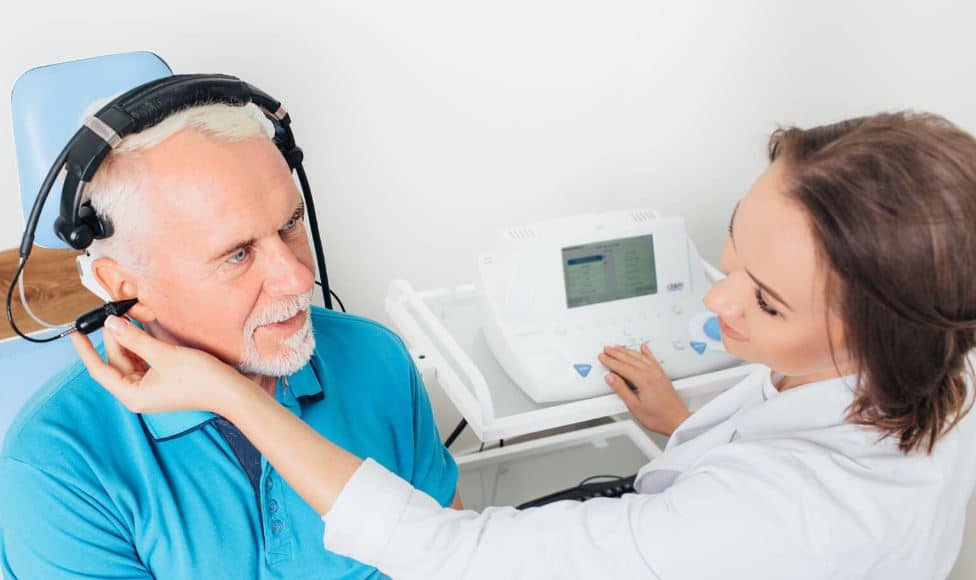On your list of favorite people, your audiologist probably won’t make the Top 10. But he or she should be #11 or something close to it.
But maybe we should be talking about a different list – perhaps the Top 10 People Who Help Make My Life Better.
Studies show that around 20% of people who would benefit from hearing aids actually use them. And according to the ASHA-AARP National Hearing Health Poll of 2300 adults aged 50+, over 75% of respondents say that hearing health is important to them, yet half reported having a hearing loss for which they had not sought help.
I feel badly for those people, because hearing health professionals, if they’re doing their job the right way, can have a huge and positive impact on our lives. They help us to hear better, to communicate better and to feel better about ourselves.
If we suspect that we have hearing loss, we need help from trained professionals who can test our hearing and recommend appropriate technical strategies. And by appropriate, I mean hearing aids that fit your needs, your lifestyle, and your budget. Most people don’t need all the bells and whistles of the latest and greatest hearing aids – especially if they can’t afford it. Something more middle-of-the-pack or even entry level will work.
If I’m in the market for a new provider, there are things that I look for that go beyond technology. Is she or he clearly knowledgeable about hearing loss and its real-life barriers? Is she or he willing to find solutions using new smartphone technology? Provide information about non-technical communication strategies like speech reading and how to advocate for ourselves? If a provider can help me in these areas, then I’m willing to help them with any of their weaker skills, such as remembering to face me when they’re talking to me.
I had a favorite audiologist with one unfortunate habit. He would chat to me while cleaning my hearing aids, even though I was temporarily deaf and unable to read his lips. And I know he was talking to me because, as he worked with his back to me, I could see his head talk-bobbing and he kept turning to smile at me, possibly waiting for an answer to a question I had not heard. Fortunately, he was trainable and he flourished under my care. We parted company only because he moved away.
Have Concerns About Your Hearing? You Have Nothing to Lose By Getting Checked!
If you think you might have hearing loss – and your family tells you for certain that you do – you lose nothing by having your hearing checked. There are lots of ‘reasons’ that people don’t seek help: denial that hearing loss exists, the stigma that ties hearing loss to dementia or aging, the belief that their condition is not serious enough to warrant help (“it’s part of life”), resistance to hearing aids (high cost, appearance, distrust of effectiveness) and a belief that hearing health professionals “only want to sell me a hearing aid”.
A good hearing care professional will test your hearing and then show you your audiogram – a picture of how you hear at various frequencies and volumes. If she suggests you get a hearing aid, it’s because you will benefit from using one. It’s that simple.
A good professional will help you navigate the sometimes frightening world of hearing loss, so you understand what’s the situation, what can be done about it, and what to expect going forward.
If you want a good relationship with your chosen audiologist, you have some duties, too. You need to have an open mind and be open to professional support. You need to ask questions and understand the answers. You should try the suggested hearing technology for the suggested amount of time. t could be the start of beautiful new friendship.
Through trial and error, I’ve learned that a good hearing health professional is someone who listens to me, validates my concerns, understands my challenges and discusses solutions with me. As a result, I live a satisfying life with hearing loss – far more satisfying than the life I’d have if I ignored professional advice and played the ‘poor me’ violin music.
And that’s why your audiologist should be in your Top 10 Important People.
 A previous version of this article originally appeared at FindHearing.com, published on July 2, 2019.
A previous version of this article originally appeared at FindHearing.com, published on July 2, 2019.







Gael – I am glad you wrote this. I recently spoke with a colleague with a hearing loss who had not had her CI reprogrammed in 5 years because she didn’t like her audiologist. She said the audiologist didn’t listen to her concerns. I would add to your list of things my audiologist needs to do is understand my concerns and be willing to try and solve them. And unlike you, I think an audiologist should know better than to talk to me while I am not facing and with my HA’s off. It just happened to me. I was have earmold impressions taken and the HA tech was chatting away. I looked at him and said “you do understand that I cannot hear you with this stuff in my ears?” He laughed and waited until he took out the impressions to talk with me. This should be part of audiology training.